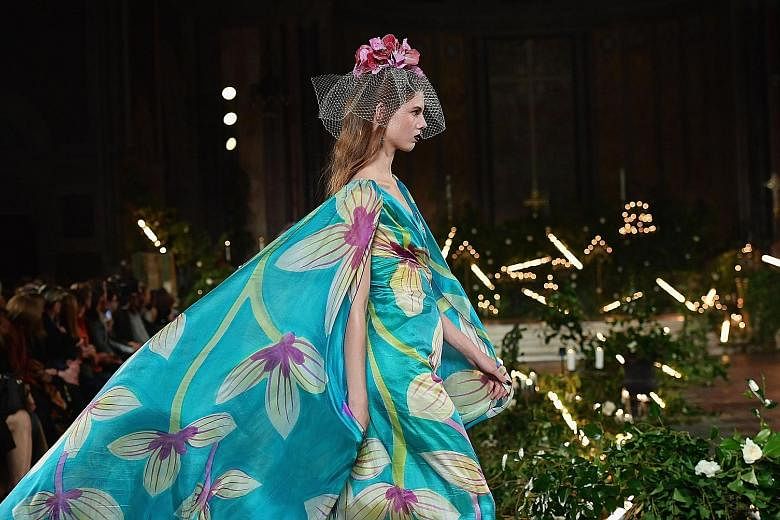NEW YORK • Taryn Harvey moved to New York City in January, hoping to break into the city's competitive modelling market after working in her Toronto home town and Cape Town.
It took her three years to secure a work visa for the move, she said.
By February, she was walking in New York Fashion Week. By March, the world had changed. "I felt like I just got here and then coronavirus happened," said the 34-year-old.
Ms Harvey was one of 212 working models who participated in a survey organised and released last month by Model Alliance, a labour rights non-profit.
The results of that survey, analysed by The Worker Institute at Cornell University, detail how the coronavirus has affected the modelling industry.
Models have long faced unpredictable working conditions. Typically classified as independent contractors, they miss out on the benefits and legal protections of full-fledged employees.
But like millions of people - and the rest of the fashion industry - models are feeling even more financially vulnerable these days.
Jobs have dried up as advertising budgets have been slashed, runway shows have been cancelled and traditional photo shoots have become impossible under social-distancing and stay-at-home orders.
About half of the models surveyed said they were currently owed money by their clients or agencies. Two-thirds said they were concerned about being able to pay for housing; one-fifth said they did not have health insurance.
The pandemic has also exacerbated the industry's racial disparities, according to the survey.
Among white models - the majority of survey participants - 86 per cent said they could afford basic necessities, compared with 60 per cent of black models.
When asked how confident they felt in pushing for coronavirus-related precautions while working, 43 per cent of white models said they felt very confident or extremely confident in asking, compared with 22 per cent of black models.
"It is really hard to talk about race as a woman of colour in this industry because you're always met with some pushback," said Ms Harvey. "You feel like you'll be seen as the 'angry black woman'."
She attended her last in-person casting in mid-March, for a beauty advertisement.
Models were asked not to go if they had travelled in the last two weeks, she said. The only other precaution Ms Harvey noticed was extra hand sanitising.
She plans to return to Toronto soon. She will go back to the United States when there is work again, she said, but it will not be easy.
Ms Sara Ziff, founding director of Model Alliance, said: "What we have captured in this report probably applies to a lot of other creatives as well. Concerns about getting paid monies owed are going to escalate - that's just my own hunch."
In recent weeks, the organisation has been assisting people in filing unemployment insurance claims, an issue it began researching after hearing questions from models about their eligibility.
One model said she applied more than a month ago, but has not yet heard back from the labour department.
NYTIMES

